Camilo Valdes
Hierarchical Sparse Bayesian Multitask Model with Scalable Inference for Microbiome Analysis
Feb 04, 2025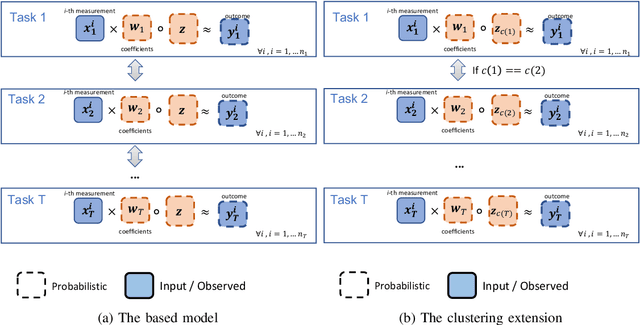
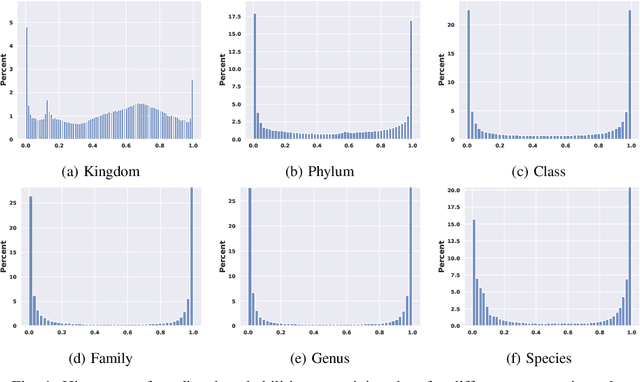
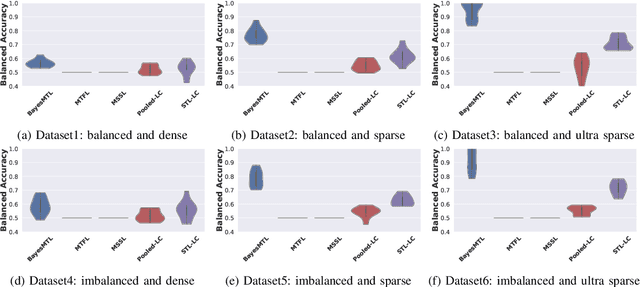
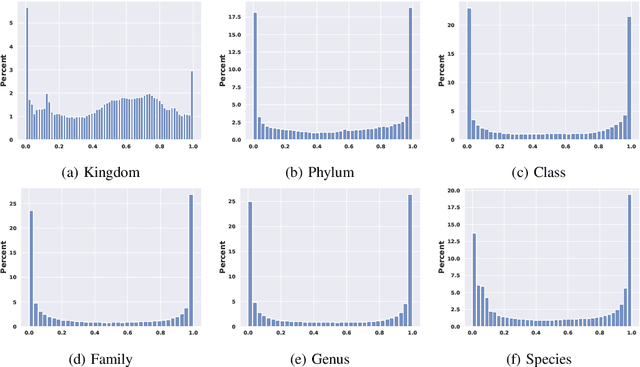
Abstract:This paper proposes a hierarchical Bayesian multitask learning model that is applicable to the general multi-task binary classification learning problem where the model assumes a shared sparsity structure across different tasks. We derive a computationally efficient inference algorithm based on variational inference to approximate the posterior distribution. We demonstrate the potential of the new approach on various synthetic datasets and for predicting human health status based on microbiome profile. Our analysis incorporates data pooled from multiple microbiome studies, along with a comprehensive comparison with other benchmark methods. Results in synthetic datasets show that the proposed approach has superior support recovery property when the underlying regression coefficients share a common sparsity structure across different tasks. Our experiments on microbiome classification demonstrate the utility of the method in extracting informative taxa while providing well-calibrated predictions with uncertainty quantification and achieving competitive performance in terms of prediction metrics. Notably, despite the heterogeneity of the pooled datasets (e.g., different experimental objectives, laboratory setups, sequencing equipment, patient demographics), our method delivers robust results.
EXP4-DFDC: A Non-Stochastic Multi-Armed Bandit for Cache Replacement
Sep 25, 2020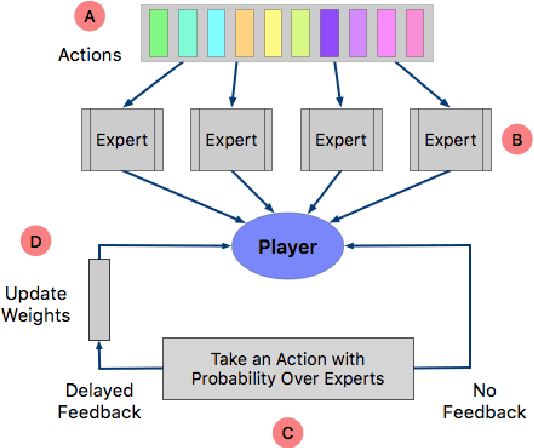
Abstract:In this work we study a variant of the well-known multi-armed bandit (MAB) problem, which has the properties of a delay in feedback, and a loss that declines over time. We introduce an algorithm, EXP4-DFDC, to solve this MAB variant, and demonstrate that the regret vanishes as the time increases. We also show that LeCaR, a previously published machine learning-based cache replacement algorithm, is an instance of EXP4-DFDC. Our results can be used to provide insight on the choice of hyperparameters, and optimize future LeCaR instances.
 Add to Chrome
Add to Chrome Add to Firefox
Add to Firefox Add to Edge
Add to Edge